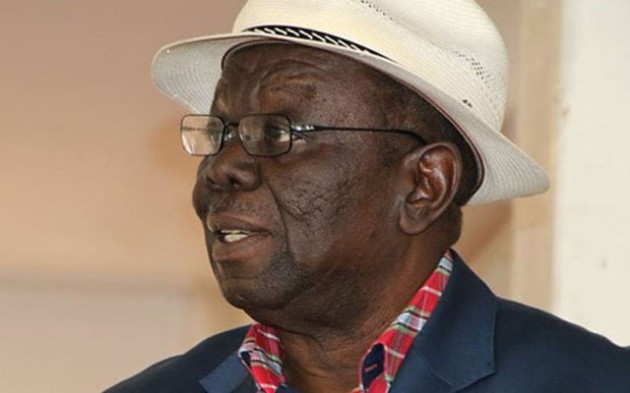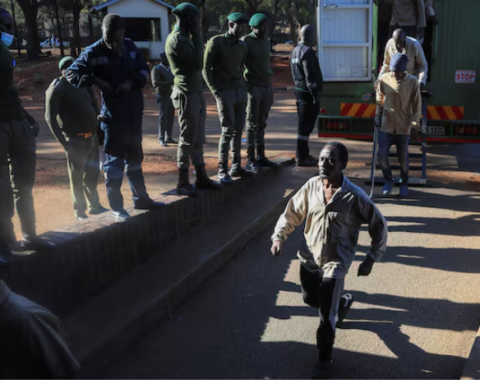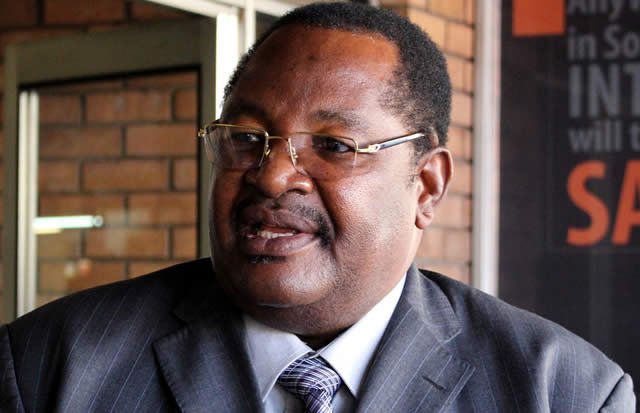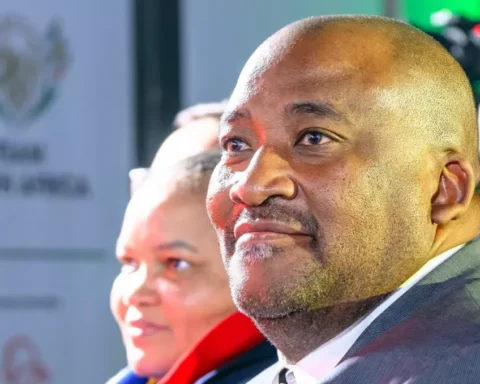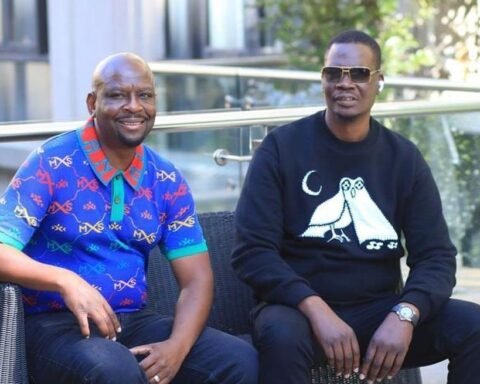Zimbabwe is once again heading into another election, as has become the norm, every five years since 1980. We are one of the few countries that did not start off as a one party state after we attained independence, although we have had one party in charge of our governance ever since. Malawi, Mozambique, Angola, Zambia, Uganda,Tanzania, Kenya and many other African countries did not immediately embrace multi-party democracy after attaining independen
The one-party socialist/communist state was a popular idea during the Cold War era. Some people erroneously or mischievously assert that multi-party democracy started in 2000 after MDC was formed in 1999. We all know that we had internationally monitored multi-party elections in 1980, and that ZANU-PF’s victory at the time stood at 63 percent, meaning 37 percent of the voters preferred different other parties.
The loss to ZANU-PF led to many of the 1980 parties dying natural deaths, or dwindling drastically as members either defected to ZANU-PF or just lost interest in politics. Then the notable parties were PF-ZAPU which won 24 percent of the vote with 20 seats, Abel Muzorewa’s UANC which won only 3 seats and the Rhodesian Front which had 20 seats reserved seats.
Parties like ZANU-Ndonga did not win anything, but went on to survive as a one region party for many years to come. ZANU-PF won 57 seats. Others like Zimbabwe Democratic Party, National Front of Zimbabwe, National Democratic Union, United National Federal Party and United People’s Association of Matabeleland simply died natural deaths after the 1980 election.
In 1985 ZANU increased its tally to 64 seats, PF-ZAPU reduced to 15 seats, RF had changed names to Conservative Alliance of Zimbabwe and also reduced its tally to 15 seats. The Independent Zimbabwe Group had 4 seats, one seat went to an independent, and the Chipinge seat went to ZANU-Ndonga. In 1990 PF-ZAPU had since coalesced with ZANU-PF under the National Unity Accord of 1987; rebranding to ZANU-PF.
The new-look ZANU-PF won 117 seats out of the 120 on offer. Two seats went to the Zimbabwe Unity Movement, whose leader Edgar Tekere had a paltry 413 840 votes in the presidential race, losing the contest to Robert Gabriel Mugabe, who garnered 2 026 967 votes to clinch the first ever Executive Presidency through an election. In 1995 there was serious voter apathy, with ZANU-PF garnering just over 1 million votes that translated to 81.4 percent of the vote.
ZANU-Ndonga had 6.9 percent of the vote, the Forum Party of Zimbabwe had 6 percent, while the Zimbabwe Congress Party, Zimbabwe Federal Party, the Zimbabwe Aristocrats and the African National Party had a combined 0.6 percent share of the vote. In 1996 there was only the Presidential election, and President Robert Mugabe won by 92.7 percent, garnering 1 404 501 votes. Veteran nationalists Abel Muzorewa and Ndabaningi Sithole lost by 77 600 votes (4.8 percent), and 36 960 (2.4 percent) respectively.
In 2000, the 6-month-old MDC had a huge surprise for ZANU-PF. The newly-formed labour-backed party narrowly lost to ZANU-PF after winning 57 of the 120 contested seats. ZANU-PF won 62 seats, and one seat went to Ndabaningi Sithole of Ndonga, before he died the same year. It was a close call that attracted massive international attention to Zimbabwe’s politics, not least because the election itself had been held at the height of the land reclamation process.
In the 2002 Presidential election, President Mugabe had 56.2 percent victory over Morgan Tsvangirai’s 42 percent. The winner had 1 685 212 votes and the runner up had 1 258 404 votes. In 2005 the parliamentary election was a setback for the MDC. ZANU-PF won 78 seats, translating to 59.6 percent of the vote. MDC won only 41 seats, translating to 39.5 percent of the vote. An independent won one seat, translating to 0.6 percent of the vote.
Interestingly, only 2 696 670 voters out of 5 658 624 registered voters participated in the election. The exodus into the Diaspora was only beginning at the time. In 2008 the country went for harmonised elections that combined Local Government, Parliamentary and Presidential elections all on the same day. In the presidential race Morgan Tsvangirai narrowly missed the victory line after he garnered 47.9 percent of the vote.
The constitutional mandate to become President is 50 percent plus one vote. President Mugabe trailed Morgan Tsvangirai on 43.2 percent of the vote, or 1 079 730 votes, compared to 1 195 562 for Tsvangirai. The run-off was a disputed process after Tsvangirai belatedly announced his withdrawal from the race. The result saw him only garnering 9.3 percent of the vote, or 433 000 votes.
President Mugabe had 85.5 percent of the vote, or 2 150 269 votes. In the parliamentary race, MDC-Tsvangirai had a total of 1 041 176 votes translating to 100 seats, while ZANU-PF led the popular vote by 1 110 649 votes, although that only translated to 99 seats. The splinter MDC then led by Arthur Mutambara had 10 seats, while Jonathan Moyo won the Tsholotsho seat as an independent.
He had at the time coalesced with the MDC-T and was its de facto candidate for that constituency. The election result of 2008 led to lengthy negotiations that culminated in an inclusive government in 2009, led by President Mugabe, with Tsvangirai as Prime Minister, and Arthur Mutambara and Thoko Khupe as deputy Prime Ministers. It was a power-sharing agreement that lasted until elections in 2013.
In 2013 President Mugabe re-affirmed his dominance on Zimbabwe’s political scene by garnering 2 110 434 votes ahead of Tsvangirai’s 1 172 439, or 61.09 percent and 34.9percent respectively. In the parliamentary race there were 210 contested seats, and 60 seats reserved for women, and to be shared on a proportional vote basis. ZANU-PF won 159 of the 210 contested seats, and 37 of the women’s seats. MDC-T won 49 of the 210 contested seats, and 21 of the women’s seats. Two renegade ZANU-PF candidates ran as independents and won. They held the other two seats out of the 120.
Now we are heading into 2018, and the ghosts that haunted the opposition have even become more wicked, meaner, and even devilish. Leading into the 2013 election, incumbency had done MDC-T more harm than good. Tsvangirai as Prime Minister of Zimbabwe did almost everything that a politician should never do. He played second fiddle to ZANU-PF in almost everything; he was hopeless on the international diplomacy front, dramatically blundering with basic protocol and procedure. In Germany he made a fool of himself.
He is not a naturally gifted orator like President Mugabe, but even then he could have made up for the shortcomings by at least running his portfolio in a promising manner. Instead, he made headlines for scandals he could neither dispute nor dispel. He had no idea who he wanted to marry between two women with close links to ZANU-PF, one a sister of a sitting ZANU-PF MP, and another a daughter to a ZANU-PF Central Committee member.
He initially married the former, changed his mind, paid her off heftily after only 12 days; went on to marry the later, and proceeded to have a wedding, but not before a South African woman came out wailing and screaming foul; after she too had been promised marriage. No one does such scandals if they are serious about winning elections, even in Africa where politicians are almost promiscuous by definition. Most MDC-T MPs who got ministerial assignments did not excel either.
Apart from Nelson Chamisa, Eric Matinenga and the noisy Tendai Biti, the rest were no more than benign place holders whose portfolios nor names nobody will ever bother remembering. Tsvangirai started well as a popular unionist, but now the unions want nothing to do with him. He has lost his original identity, and he has not assumed any meaningful one thereafter. The man is absolutely hopeless in managing conflicts.
He first split the MDC in 2005 over an inconsequential matter. To agree or not to agree with ZANU-PF over the reintroduction of the Senate was inconsequential because ZANU-PF had the two-thirds majority to change the Constitution anyway. But Tsvangirai wanted his subordinates to unquestionably think like him, and he decided that whoever was not opposed to the idea could leave the MDC and form their own party – regardless that such opposition was only symbolic anyway.
It is hard to believe that Tsvangirai is advised politically. If he is, he probably has the worst among the worst political advisors ever to grace the face of this planet. If he has good advisors then they are simply not listened to. After the loss in 2013 the MDC-T split again after the Tsvangirai-aligned thugs yet again tried to violently haunt those who did not see things the same way as Tsvangirai, like the same thugs did in 2005.
Tsvangirai is still heavily tainted by the scandals of his tenure as Prime Minister, is now tormented by an unfortunate ailment, leads the weakest MDC outfit since 1999, has three deputies that are clearly not coherent with each other, and pretends to be fronting something called the “MDC Alliance”. It is a laughable coalition of political ghosts. There is Welshman Ncube in there, Tendai Biti who has been disowned by his own party, and a whole lot of nobodies whose value is no more than that of any single ordinary voter out of there.
Dr Joice Mujuru knows no better than singing and dancing her way in politics. Since she formed the ill-fated Zimbabwe People First she has just been a target and willing recipient of pity and sorrow. After the fallout with the other no-hopers in Zim-PF, she formed the NPP, merely a party of ZANU-PF outcasts and rejects — excellent at singing and dancing entertaining mobilisation songs. Simply put, there is no meaningful headway towards 2018 for Mai Mujuru and her political outfit.
How sad that such a revered liberation struggle cadre seems to be winding her political career as a pitiful victim of political misfortunes — thanks to her unbridled ambitions and the consequent counter ruthlessness from ZANU-PF. This leaves the faction-afflicted ZANU-PF as the sole dominant force on the political scene. Truly speaking, if the two factions within ZANU-PF were to contest each other in 2018, they could easily come up as the two top political outfits in the country. That is how hopeless the opposition has become.
Nothing matters against ZANU-PF anymore, not the age of President Mugabe, not his health status even, not the fiercely fighting factions, not the incompetent bunch of Ministers, not the status of the economy even — just nothing matters bad enough to affect the electoral prospects of winning 2018. Nkosana Moyo is the African joke that comes to the political battlefield armed with good looks and excellent policy promises.
But we are not in Sweden or some such nice Western country. We are in Africa where they play it ugly and rough. Without the fanatic singing and dancing lumpen proletariat voter, Nkosana Moyo will remain the idol of a minority class of poverty-stricken intellectuals – extending the definition to anyone with some kind of tertiary education, or mere desire to appear sophisticated. Moyo is a nice gentleman, just not ugly enough to make it in African politics. He must have seen how the mythically admired Simba Makoni suddenly fell from supposed national glory and admiration right down to below the level of this column’s popularity.
ZANU-PF in whatever form is more than likely to win Election 2018, and that is simply because the party is the only one with meaningful mobilisation capacity and strategy at the moment. There is no indication the MDC-T will do anything we have not yet seen, and that is just the way it is.
Zimbabwe we are one and together we will overcome. It is homeland or death!!
- Reason Wafawarova is a political writer based in SYDNEY, Australia.

